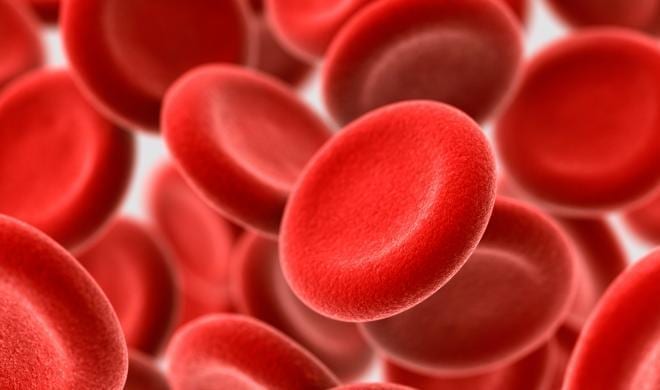Last week, the first bellwether trial over Xarelto, a “new generation” blood thinner jointly developed by Bayer and Johnson & Johnson, concluded. The jury found in favor of the Big Pharma defendants on Wednesday, after less than three hours of deliberation.
Bellwether trials are a means for parties and attorneys to test their arguments and are common in mass torts, such as with Xarelto. The cases are selected by each party as being representative of cases in the overall mass tort. Parties use the outcomes of bellwethers to determine if continued litigation or settlement is the best course of action.
There are roughly 18,000 lawsuits in state and federal court dealing with the alleged dangerousness of Xarelto. The plaintiffs further allege that the companies did not adequately warn the public about the dangers, including uncontrollable and irreversible bleeding. The first of these cases to see the inside of a courtroom involved 75-year-old plaintiff Joseph Boudreaux, a part-time security guard from Louisiana.
Mr. Boudreaux began taking Xarelto in 2014 for a heart condition. He experienced gastrointestinal bleeding, hospitalization and several blood transfusions, allegedly as a result of taking the drug.
Xarelto obtained FDA approval in 2011 and was designed to treat the heart rhythm condition, atrial fibrillation, and to help prevent dangerous blood clots (deep vein thrombosis and pulmonary embolisms). There is currently no antidote and there may not be for months or years to come. The antidote, AndexXa, has been delayed by the FDA over manufacturing concerns. Preliminary studies show that AndexXa could save up to 90% of patients who experience Xarelto-related bleeding. Portola Pharmaceuticals is AndexXa’s creator.

Xarelto was developed as a replacement for Coumadin, the standard blood thinner since the 1960s. Coumadin, made by Bristol-Myers Squibb, requires patient monitoring through regular blood tests, as well as certain dietary restriction. It’s also easily counteracted in emergencies through treatment with vitamin K. Certain of the suits against Xarelto’s makers allege that they falsely marketed Xarelto, stating that the lack of need for blood testing and dietary restrictions made the drug superior to Coumadin.
Both Bayer and J&J have great reasons to defend their product, roughly 5.5 billion of them. Xarelto is Bayer’s number one product in sales, garnering the Big Pharma giant $3.24B in 2016 alone. And, it’s J&J’s number three big money maker, earning that company $2.29B last year.
The plaintiff’s team understands that all too well. Gerald Meunier, one of Mr. Boudreaux’ lawyers, said, “We never expected the struggle to be an easy one. We realize Bayer and Janssen have a lot of resources and a lot of motivation to protect Xarelto.”
Despite that, and the loss of the first bellwether, the team is not giving up. Andy Birchfield and Brian Barr, part of Mr. Boudreaux’ trial team, issued a joint statement expressing both their disappointment in the verdict and their intent to continue litigation.
The statement said, “As always, we will learn from the experience of this trial, and continue to press forward with the legal claims of thousands of innocent victims whose lives have been shattered by Xarelto.”
The Big Pharma defendants are thrilled with the outcome of Mr. Boudreaux’ case, as evidenced by post-trial statements from their spokespeople.
William Foster, on behalf of J&J, said, “The jury’s decision reflects the facts of this case and the appropriateness of the Xarelto prescribing information.”
One Bayer spokesperson, Chris Loder, said that the verdict indicated that Xarelto’s “FDA-approved label contains accurate, science-based information on the benefits and risks of this life-saving medicine.”
Mr. Barr saw it differently. “They [defendants] only accept science they like, and decide to ignore science they don’t like. They know if they require [a] blood test, they’re terrified that doctors will just use another drug.”
The blood test to which Mr. Barr referred is a safety test that determines an individual patient’s bleeding risk.
The defendants countered that such a test didn’t give doctors any useful information. Beth Wilkinson, one of Bayer’s lawyers, said, “There’s no evidence the FDA thinks the [safety] test should be in the label.” Ms. Wilkinson further said that the test “could harm patients because it could give misleading information.”
The defendants would understand misleading information. Logically, a blood thinning agent that has no antidote presents a problem for those who need emergency surgery, as well as those who happen to be injured in such a way that they experience bleeding, whether internal or not. Whereas patients taking Coumadin would be given the vitamin K antidote, what are Xarelto patients to do?
According to a study published on the National Center for Biotechnology Information (NCBI) website, if the concentration of Xarelto in the patient’s bloodstream is below a certain level, surgery should be fine. If the concentration has yet to reach that lower level, “the intervention should be postponed.” There are certain non-antidote clotting agents that can be administered, but these create a higher risk of dangerous blood clots, the very thing these patients need to avoid.
The next bellwether trial is scheduled for May 30.
Sources:


Join the conversation!